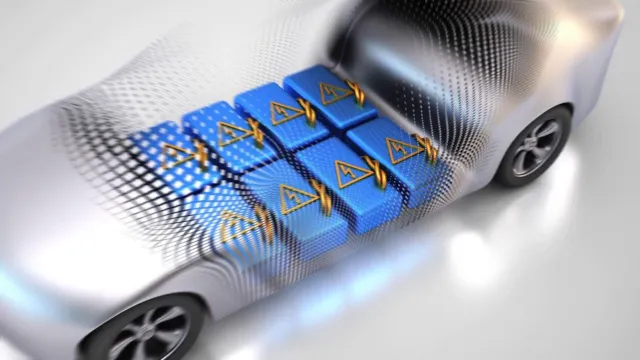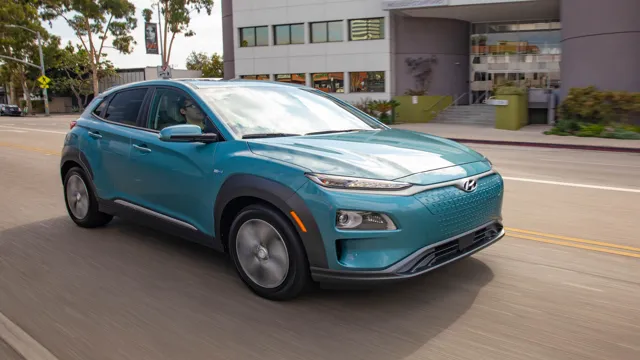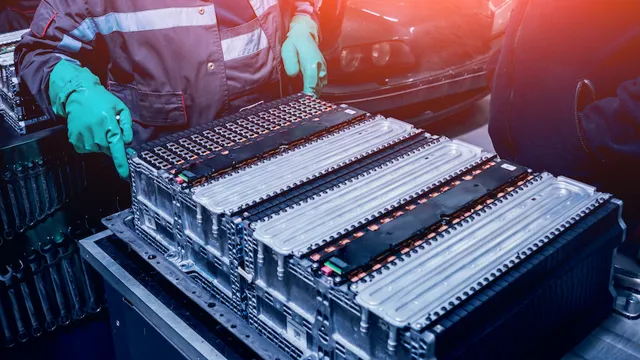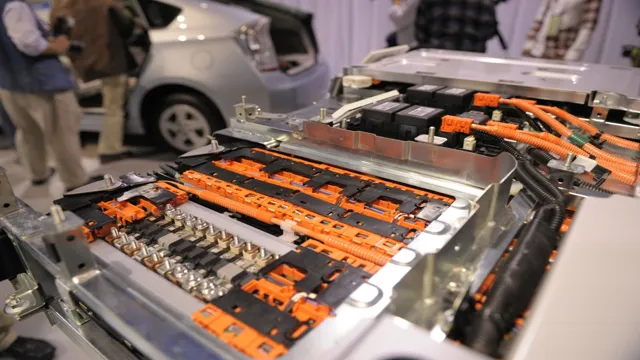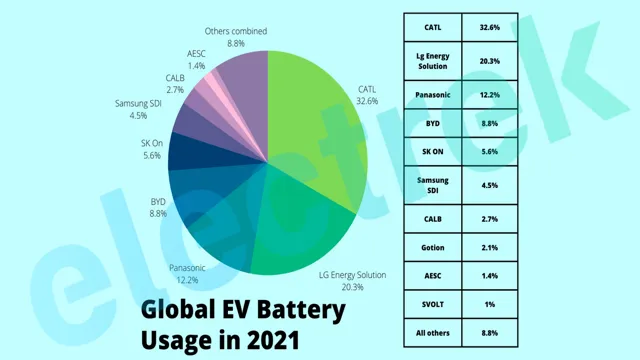Powering Up: The Truth About Electric Car Batteries and Their Environmental Impact
Electric vehicles (EVs) have been gaining popularity in recent years as an environmentally friendly alternative to traditional gasoline-powered cars. However, one question that often arises when discussing EVs is whether their batteries are actually eco-friendly. After all, the production and disposal of batteries can have an impact on the environment.
In this blog, we will address the question of whether EV batteries are eco-friendly and explore some of the factors that contribute to their environmental impact. By the end, you’ll have a better understanding of the environmental implications of EV batteries and how they compare to gasoline-powered cars.
What Makes EV Batteries Different from Traditional Car Batteries?
“Are the batteries in electric cars eco-friendly?” is a common question when it comes to the use of electric vehicles. The answer is yes, because electric car batteries are designed to be more environmentally friendly and sustainable than traditional car batteries. One of the key differences is that EV batteries are typically lithium-ion batteries, which use fewer harmful chemicals and metals than lead-acid batteries used in conventional cars.
These batteries are also more efficient in that they can store more energy in a smaller amount of space, which means less waste and fewer materials needed to create the battery. Additionally, EV batteries can be recycled and reused, further reducing their environmental impact. Overall, while electric car batteries are not 100% eco-friendly, they are certainly a more sustainable option compared to traditional car batteries.
Composition and Production Methods
The main difference between EV batteries and traditional car batteries lies in their composition and production methods. EV batteries are typically made up of lithium-ion cells, while traditional car batteries use lead-acid technology. Lithium-ion cells offer several advantages over their lead-acid counterparts, such as higher energy density, faster charging times, and longer lifetimes.
Additionally, the production process for EV batteries is much more complex than traditional car batteries. It involves multiple steps, including cell assembly, battery pack assembly, and testing, to ensure that the battery pack is reliable and meets safety requirements. Overall, the difference in composition and production methods highlights the significant advancements in technology that have facilitated the widespread adoption of EVs.
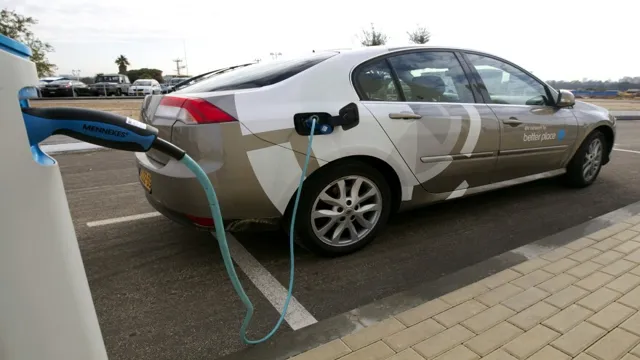
Lifecycle Impact Comparison
Lifecycle Impact Comparison, EV Batteries, Traditional Car Batteries When it comes to the comparison of EV batteries and traditional car batteries, there are some significant differences worth considering. Firstly, electric vehicle batteries are designed to have a longer lifespan. They can last up to 10 years or more, while conventional car batteries typically last for a maximum of five years.
Secondly, the materials used in EV batteries, such as lithium-ion, are reusable and can be recycled at the end of their useful life. In contrast, traditional car batteries contain hazardous and toxic materials like lead and sulfuric acid, which can be harmful to the environment. Moreover, the manufacturing process of EV batteries requires less energy and emissions than traditional car batteries, reducing their carbon footprint.
Thus, it’s clear that EV batteries are a more eco-friendly option than traditional car batteries and have a significant positive impact on the environment.
Environmental Benefits of EV Batteries
Many people wonder if the batteries in electric cars are eco-friendly. The answer is yes, they are! While the production of batteries can have a large carbon footprint, the benefits of using electric cars far outweigh the negatives. Firstly, the use of electric cars means that harmful emissions are significantly reduced, leading to cleaner air and a healthier environment.
Additionally, many EV batteries are designed to be recycled, with up to 95% of the battery being able to be reused. This reduces the need for new materials and decreases the amount of waste that ends up in landfills. Overall, electric cars with their eco-friendly batteries offer a more sustainable mode of transportation that benefits our planet and our health.
Reducing Carbon Emissions
Electric vehicle (EV) batteries offer a range of environmental benefits when it comes to reducing carbon emissions. By replacing traditional gasoline-powered vehicles with EVs, we can greatly reduce the amount of greenhouse gases emitted into the atmosphere. One of the main benefits of EV batteries is that they produce zero emissions while driving, meaning that they do not emit harmful pollutants that contribute to global warming.
Additionally, the production of EV batteries is becoming increasingly more sustainable with advancements in technology. This means that the environmental impact of producing these batteries is decreasing, making them a more viable and eco-friendly alternative to traditional vehicles. By choosing to drive an EV and utilizing its battery technology, we can make a significant impact in reducing the amount of carbon emissions our vehicles produce and help protect our planet for future generations.
Recycling and Reusing EV Batteries
Recycling and reusing EV batteries can have a significant environmental impact. As more and more people switch to electric vehicles, the demand for batteries is increasing. However, the production of these batteries is energy-intensive and requires the use of scarce resources.
That’s why it is essential to recycle and reuse these batteries at the end of their life cycle. By doing so, we can reduce the amount of waste going to landfills and conserve natural resources. Additionally, the metals contained in EV batteries, such as lithium and cobalt, can be used for other applications, including the production of new batteries.
This approach can help reduce the environmental impact of EVs even further by reducing the need for new raw materials to manufacture batteries. In summary, recycling and reusing EV batteries is crucial for a sustainable future, and we must continue to develop new and innovative ways to do so effectively and efficiently.
Decreased Dependence on Fossil Fuels
As electric vehicles become more popular, one of the most significant environmental benefits is the decreased dependence on fossil fuels. EV batteries can be charged using renewable energy sources, such as solar or wind power, which reduces pollution and greenhouse gas emissions. The ability to store electricity in batteries also means that it can be generated during off-peak hours when there is less demand on the grid.
This not only reduces strain on the energy infrastructure, but it also helps to stabilize the grid. Additionally, using EVs means less reliance on oil and gas as energy sources, which has the potential to reduce geopolitical tensions and conflicts over energy resources. By making the switch to electric vehicles powered by renewable energy, we can help protect the environment and pave the way for a more sustainable future.
It’s time to embrace the power of electric cars and let go of the old and outdated fossil fuel-based technology.
Limitations and Challenges
“Are the batteries in electric cars eco-friendly?” Although electric cars are environmentally friendly, the batteries that power them are not entirely eco-friendly. Lithium-ion batteries, which are common in electric cars, require the mining of rare metals like cobalt and lithium. The extraction of these metals has significant environmental impacts, including deforestation, water pollution, and greenhouse gas emissions.
Additionally, the production of these batteries requires a vast amount of energy, which primarily comes from fossil fuels. This process contributes to greenhouse gas emissions and climate change. Furthermore, the recycling process for lithium-ion batteries is still challenging, and many of them end up in landfills.
As such, while electric cars do produce less carbon emissions overall, the production and disposal of their batteries have significant environmental impacts that need to be addressed. It is essential to invest in more environmentally friendly battery technologies that do not rely on rare metals and are easier to recycle.
Raw Material Sourcing Impacts
Raw material sourcing impacts can be a daunting task for many businesses, and it’s not hard to see why. One of the main challenges is dealing with limitations in the availability of quality raw materials. This issue is particularly prevalent in industries such as agriculture and mining, where factors like weather patterns and depletion of minerals can restrict the amount of raw materials available.
Additionally, there is the ongoing challenge of identifying and sourcing raw materials that meet certain ethical standards. The demand for sustainability and fair labor practices has put pressure on businesses to be more transparent about their sourcing practices, which can be time-consuming and costly. Despite the challenges, businesses that prioritize responsible raw material sourcing have the potential to gain a competitive edge by appealing to consumers who are increasingly conscious of environmental and social issues.
End-of-Life Disposal Challenges
The disposal of electronic devices like smartphones, laptops, and other gadgets has become a daunting task, mainly due to the challenges of end-of-life disposal. One significant limitation is the difficulty in separating the different materials used in these devices. For example, most smartphones and laptops contain a mix of rare metals, plastics, and glass.
Separating the various materials for recycling is an intricate process, and often, people are not aware of what can and can’t be recycled. Also, many of these materials, such as rare metals, are not available in sufficient quantities to meet global demand, making it challenging to recycle them efficiently. As a result, these materials often end up in landfills, contributing to the pollution of the environment.
Another significant challenge is the lack of proper legislation to regulate the disposal of electronic waste. Many countries still lack adequate recycling facilities, and many individuals still do not understand the detrimental effects of improper disposal of electronic devices. However, awareness campaigns can help mitigate this issue, educating people on the need to recycle electronic devices and the right way to dispose of them.
Conclusion: EV Batteries as a Step Toward a Greener Future
It’s clear that the batteries in electric cars are a step in the right direction towards a cleaner and more sustainable future. While they may not be 100% eco-friendly, they certainly have a much smaller environmental impact than the gas-guzzling alternatives. And as technology advances, we can expect even more efficient and eco-friendly battery options to become available.
So if you’re looking to reduce your carbon footprint and help protect the planet, it might be time to consider going electric!”
FAQs
What kind of batteries are used in electric cars?
Electric cars use lithium-ion batteries which are more environmentally friendly than traditional fossil fuels.
How long do electric car batteries last?
The lifespan of an electric car battery can vary depending on various factors, but typically they can last up to 10 years before they need to be replaced.
Can electric car batteries be recycled?
Yes, electric car batteries can be recycled and turned into new batteries or other products, making them a more sustainable and eco-friendly option.
Are electric car batteries safe for the environment?
Electric car batteries are much safer for the environment than traditional gasoline-powered vehicles as they produce zero emissions and do not contribute to air pollution or greenhouse gases.
